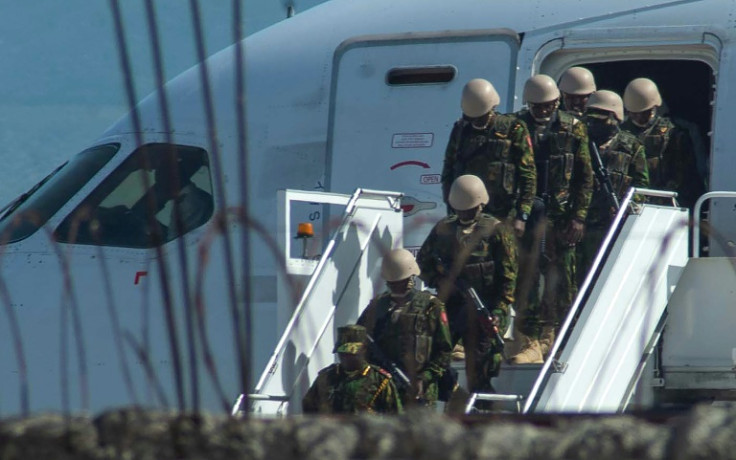
The Kenya-led Multinational Security Support (MSS) mission in Haiti, launched to assist the country's efforts in combating armed gangs, remains underfunded and significantly below its planned force size of 2,500 personnel.
The mission, authorized for a year in October 2023, currently consists of 400 Kenyan police officers and is scheduled for review by the United Nations Security Council at the end of September 2024, with the U.S. reportedly seeking to turn it into a UN peacekeeping mission.
In this context, MSS commander on the ground, Kenya's Godfrey Otunge acknowledged shortcomings but said he remains confident in its ability to achieve progress. Speaking to the Miami Herald, he claimed that once additional personnel and resources from countries such as Jamaica and Belize are in place the mission will be better positioned to combat the gangs effectively.
One of the major issues the mission faces is its limited manpower and the challenges of working in a new environment. Otunge highlighted that the mission is still in its deployment phase, during which the primary focus has been on resource mobilization, personnel training, and induction.
Despite this, Kenyan officers have already begun collaborating with Haitian police (HNP) in various operations, such as recapturing the State University of Haiti hospital, which had been controlled by gangs, and reopening access to the seaport, which had been barricaded.
The mission's funding and logistical shortfalls have also drawn attention. While additional equipment has arrived, the mission continues to lack key resources such as helicopters, which would be crucial for surveillance and rescue operations in the difficult terrain of Haiti's urban areas. Otunge emphasized the importance of air support for both tactical operations and emergency response, stating that helicopters could allow the mission to bypass gang barricades and rescue trapped personnel or civilians.
Another issue confronting the MSS is its multinational character, which has sometimes been overshadowed by the perception that it is primarily a Kenyan force. Otunge was quick to clarify that the MSS is an international mission, with Kenya simply taking the lead in operations, but with contributions expected from nations like Belize, Jamaica, and The Bahamas. The gradual involvement of these countries, along with the expansion of Kenyan personnel, is intended to bolster the mission's capacity to address the gang violence that continues to plague Haiti.
When asked about the mission's long-term sustainability, Otunge pointed to ongoing efforts to secure further international support, including direct assistance from foreign governments. He noted that several nations have expressed interest in providing equipment and other forms of aid to ensure the mission's success.
As the MSS continues its operations, Otunge remains confident in its eventual success. He expressed determination that gang leaders like Lanmo Sanjou, who has threatened further takeovers, will be defeated. Otunge assured that the mission's presence in Haiti will not end until its goals are fully achieved, reiterating the commitment Kenya has made to restore security in Haiti.
© 2024 Latin Times. All rights reserved. Do not reproduce without permission.









